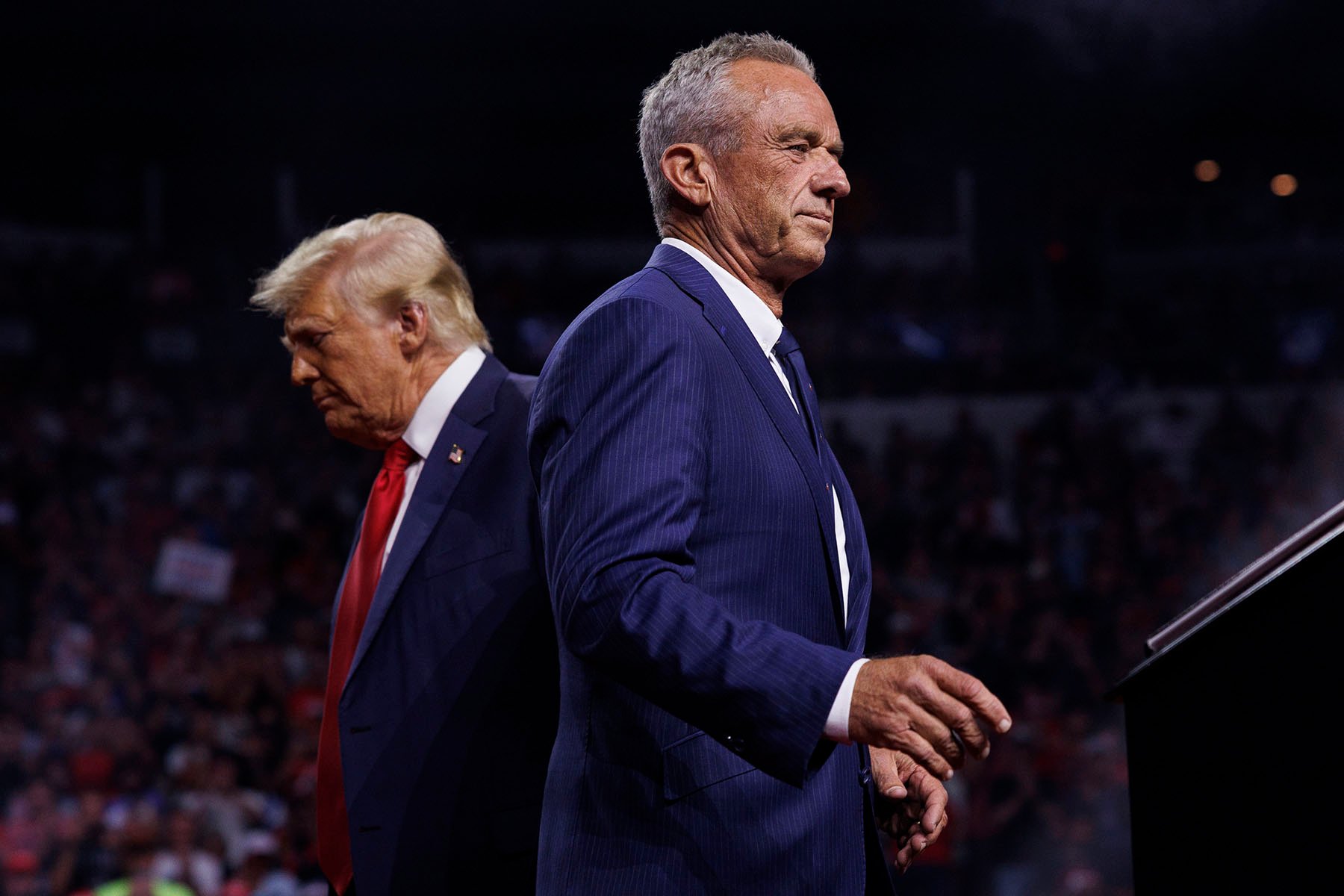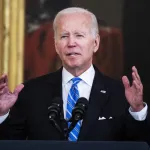President-elect Donald Trump intends to nominate anti-vaccine conspiracy theorist Robert F. Kennedy, Jr. to head the Department of Health and Human Services.
“The Safety and Health of all Americans is the most important role of any Administration, and HHS will play a big role in helping ensure that everybody will be protected from harmful chemicals, pollutants, pesticides, pharmaceutical products, and food additives that have contributed to the overwhelming Health Crisis in this Country,” Trump wrote in an email and on his platform, TruthSocial, on Thursday.
The ascent of Kennedy, who became a top Trump adviser during the 2024 campaign, has sparked widespread concern among the public health community, who fear his fringe views could undo decades of progress against the spread of infectious diseases. HHS will have vast power to influence policy areas including health insurance and availability, disease monitoring and prevention, abortion access, contraceptive care, disability rights and LGBTQ+ health. The department oversees agencies such as the Administration for Children and Families, the Centers for Medicare and Medicaid Services and the Food and Drug Administration.
Kennedy, who touts a “Make America Healthy Again” agenda, has said as a presidential candidate and as an adviser to Trump that he wants to redirect the federal health apparatus to focus on areas such as regulating seed oils, which he has called toxic despite research showing their health benefits. He has inflated the risks of COVID-19 vaccines — and pediatricians fear that his strident anti-vaccination views could particularly endanger kids.
In 2007, Kennedy founded the Children’s Health Defense Fund, initially called the World Mercury Project. Misinformation spread by the organization and other anti-vaccine groups was linked to a 2018 measles outbreak in American Samoa, which led to 83 deaths.
The Children’s Health Defense Fund has consistently targeted mothers and Black Americans in their messaging — groups experts say are more likely to experience vaccine hesitancy due to negative historical and personal experiences with medical care.
On the campaign trail, Trump promised he would let Kennedy “go wild” on health — singling out women in particular as people whose health care access could be affected.
Ahead of the election, Kennedy said one of Trump’s first acts in the White House would be to “advise all U.S. water systems to remove fluoride from public water.” Kennedy has also described fluoride as “poison.” Fluoride has been added to American water systems for decades, a practice that the American Dental Association estimates has reduced tooth decay by about 25 percent.
Though Republicans control the Senate, it’s not clear if Kennedy will be confirmed. Earlier this week, Republican senators would not answer questions about whether he had their support, the health publication STAT News reported. Trump has pushed for the Senate to use a process called recess appointments, in which he and Senate Majority Leader John Thune could pick Trump’s Cabinet without Senate approval.
It is unclear how much or how quickly Kennedy will be able to implement any of these changes without action from Congress. However, some federal workers are already planning to leave, according to NBC. While there wasn’t much employee turnover between the Obama and first Trump administrations, there is concern about what Kennedy might mean for public health and their careers.
“What we don’t really need at HHS is more medical expertise. What we need is an expertise on decoupling the agency from institutional corruption. Because it’s the corruption that has distorted the science,” Kennedy said during a September 30 Town Hall in Philadelphia.
Abortion opponents have argued that a Trump administration HHS should be used to institute national restrictions — for instance, leveraging the FDA to restrict access to mifepristone, one of the medications used in most abortions, or to even undo its approval altogether. Other HHS subsidiaries could also influence access to the procedure. Under Trump’s previous administration, the Office of Refugee Resettlement sought to deny abortions to immigrants in its custody.
On abortion specifically, Kennedy has been inconsistent. When running for president as an independent candidate, Kennedy suggested he opposed banning abortion before fetal viability, the standard protected by the now-overturned Roe v. Wade. Earlier in his campaign, when still running as a Democrat, Kennedy had endorsed banning the procedure after the first trimester of pregnancy before walking back those remarks.
“There’s no question that we need a pro-life HHS secretary, and of course, we have concerns about him,” Marjorie Dannenfelser, head of the anti-abortion group SBA Pro-Life America, told the news outlet Semafor.
Kennedy has also not publicly spoken about contraception. Under President Joe Biden, the health department has expanded access to birth control, approving the first-ever over-the-counter hormonal birth control pill and pushing to enforce Affordable Care Act regulations that require health insurance to cover approved methods.
Kennedy’s opposition to gender-affirming care for transgender minors, as well as misinformation that he has spread about LGBTQ+ youth and HIV/AIDS, signals a sharp reversal from how the HHS has approached health care for LGBTQ+ people under Biden.
Kennedy opposes gender-affirming care for minors, which largely refers to puberty blockers and hormone replacement therapy. He has inaccurately portrayed puberty blockers, which temporarily delay the hormones that cause kids to go through puberty, as “repurposed castration drugs.” In May, he stated that “people with gender dysphoria or who want to change their gender deserve compassion and respect” while adding that “these terribly consequential procedures should be deferred till adulthood.”
False claims and conspiracies shared by Kennedy involving LGBTQ+ people include theories that the use of poppers, a recreational drug frequently used in gay nightlife, was “a significant factor in the disease progression for the first AIDS victims of the early 1980s.” He also suggested that “sexual identification” and “gender confusion” among minors is caused by man-made chemicals in water or the environment.
In Project 2025, the policy blueprint for a second Trump administration offered by the conservative Heritage Foundation, most of the proposed anti-LGBTQ+ policies would be executed through HHS. These policies proposed by Project 2025— which Trump has disavowed any part in, despite at least 60 percent of its contributors being linked to the president-elect — include protecting adoption and foster care services that refuse to work with LGBTQ+ married couples and to redirect federal funds to support a “biblically based” definition of family. Although it remains to be seen whether the Trump administration will follow the suggestions in Project 2025’s playbook, whoever leads the HHS will have an outsized role in shaping the next four years for LGBTQ+ Americans.
Under the Biden administration, HHS advocated for trans youth to access gender-affirming care. As states across the country banned that care, the agency encouraged health care providers who were kept from providing it to file complaints with the agency’s office for civil rights. The administration undid rulemaking put in place by the first Trump administration that excluded trans people from nondiscrimination protections in the Affordable Care Act.





